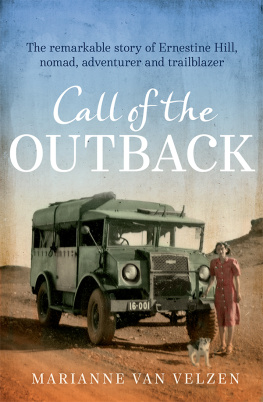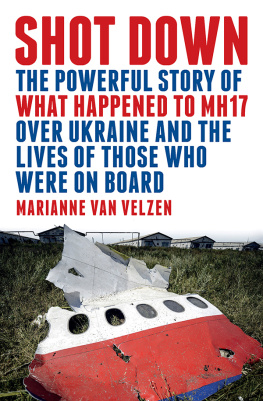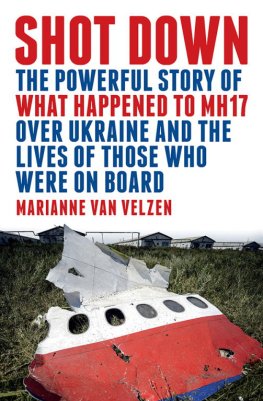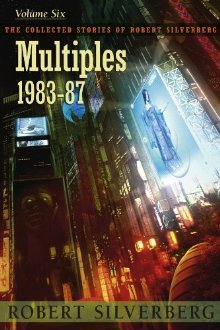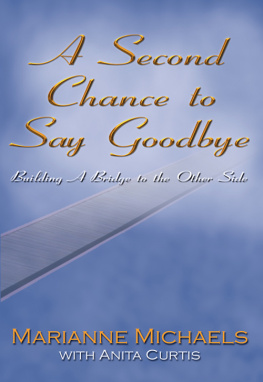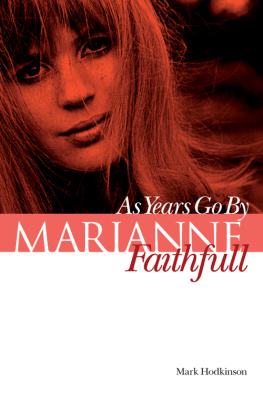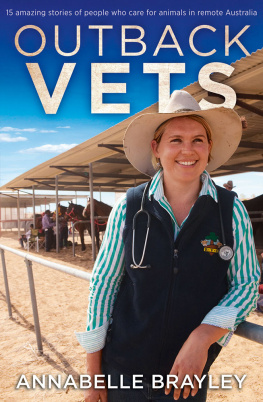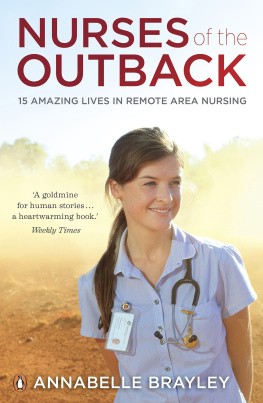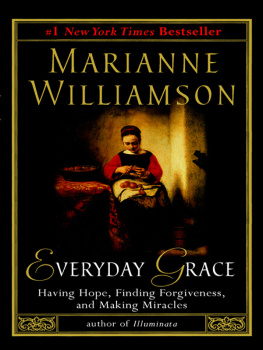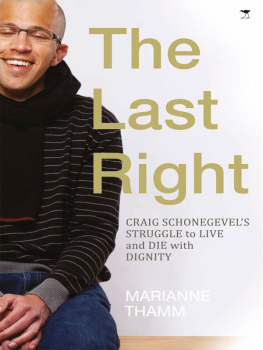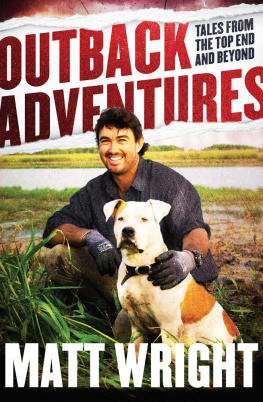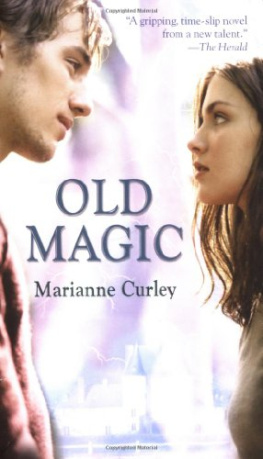Marianne van Velzen - The Call of the Outback
Here you can read online Marianne van Velzen - The Call of the Outback full text of the book (entire story) in english for free. Download pdf and epub, get meaning, cover and reviews about this ebook. year: 2015, publisher: Allen & Unwin, genre: Non-fiction. Description of the work, (preface) as well as reviews are available. Best literature library LitArk.com created for fans of good reading and offers a wide selection of genres:
Romance novel
Science fiction
Adventure
Detective
Science
History
Home and family
Prose
Art
Politics
Computer
Non-fiction
Religion
Business
Children
Humor
Choose a favorite category and find really read worthwhile books. Enjoy immersion in the world of imagination, feel the emotions of the characters or learn something new for yourself, make an fascinating discovery.
- Book:The Call of the Outback
- Author:
- Publisher:Allen & Unwin
- Genre:
- Year:2015
- Rating:3 / 5
- Favourites:Add to favourites
- Your mark:
- 60
- 1
- 2
- 3
- 4
- 5
The Call of the Outback: summary, description and annotation
We offer to read an annotation, description, summary or preface (depends on what the author of the book "The Call of the Outback" wrote himself). If you haven't found the necessary information about the book — write in the comments, we will try to find it.
The Call of the Outback — read online for free the complete book (whole text) full work
Below is the text of the book, divided by pages. System saving the place of the last page read, allows you to conveniently read the book "The Call of the Outback" online for free, without having to search again every time where you left off. Put a bookmark, and you can go to the page where you finished reading at any time.
Font size:
Interval:
Bookmark:

Warning: Aboriginal and Torres Strait Islander readers should be aware that this document may contain the images or names of people who have passed away.
All attempts have been made to locate the owners of copyright material. If you have any information in that regard, please contact the publisher at the address below.
First published in 2016
Copyright Marianne van Velzen 2016
All rights reserved. No part of this book may be reproduced or transmitted in any form or by any means, electronic or mechanical, including photocopying, recording or by any information storage and retrieval system, without prior permission in writing from the publisher. The Australian Copyright Act 1968 (the Act) allows a maximum of one chapter or 10 per cent of this book, whichever is the greater, to be photocopied by any educational institution for its educational purposes provided that the educational institution (or body that administers it) has given a remuneration notice to the Copyright Agency (Australia) under the Act.
Allen & Unwin
83 Alexander Street
Crows Nest NSW 2065
Australia
Phone: (61 2) 8425 0100
Email:
Web: www.allenandunwin.com
Cataloguing-in-Publication details are available from the National Library of Australia
www.trove.nla.gov.au
ISBN 978 1 76029 059 7
eISBN 978 1 95253 302 0
For Leonardus van Velzen
and
Maria Johanna Meijer
in loving memory and gratitude
They dared to lose sight of the shore.
Man cannot discover new oceans
unless he has the courage to
lose sight of the shore.
Andr Gide
Contents
In the late afternoon of 7 January 1933 a crowd gathered along the railway line, clustering together on the small platform at the station in Alice Springs. The sand-beaten Ghan came to a quivering halt. As the doors opened and people started spilling out, the men and women at the back of the crowd craned their necks, trying to catch a glimpse of the travellers.
They had come to see a particular group of medical scientists. An article in the Adelaide Advertiser had drawn attention to the arrival of a group of men who were to camp out in the desert for six months. According to the newspaper, the scientists would carry out tests on Aboriginal people to ascertain how [they were] able to exist on small supplies of water in arid areas.
Among the scientists were the young doctor John Antill Pockley and the artist Arthur Murch. The latter had been invited on the trip to paint the dead heart of Australia and lend a hand where necessary. After boarding the train in Adelaide, the young men had acted like schoolboys on an outing but disembarking in Alice Springs and realising that the crowd had gathered merely to see their strange troupe, they suddenly felt somewhat self-conscious.
The seven men were going into the outback, braving temperatures of more than 50 degrees Celsius. They set out for the Hermannsburg Mission to meet anthropologist Theodor (Ted) Strehlow, the son of the first administrator of the mission post, Reverend Carl Strehlow. There they planned to live among the Aboriginal people and their task for many weeks would be to measure how much water these locals drank against water lost in their urine and sweat. It meant heat, dust, flies and, for the young doctors, an adventure like no other. Pockley nervously plucked at his three-day-old moustache as he disembarked. He and Dr Hugh Barry had decided to grow moustaches and beards on the trip.
As he turned to the crowd, Pockleys eyes caught the outline of a frail lady in the background scribbling away in a notebook. The culprit, he thought. This lady reporter was no doubt responsible for the articles in The Advertiser that had attracted the unwanted crowd.
His attention refocused when he noticed a tall man making his way through the sea of inquisitive heads. It was his friend, Dr David Brown, the only medical man in Central Australia. After a quick hello, Brown led the party away from the curious gazes and into the blistering sandy streets of the Alice. I suppose you men would like a drink? he asked as he led them on. I live next to the Stuart Arms, the oldest pub in town.
The pub was reasonably cool and the party positioned themselves around the bar, where they were handed cold beers by a scrutinising barmaid. You blokes the professors? she asked haughtily. Thought as much. Her eyes showed she had already passed judgement, no matter where they came from.
As the bar began to fill, the men were introduced to a solicitor, the bank manager and the lady reporter, whose name was Ernestine Hill. Pockley was somewhat surprised and a little disappointed when the lady told him she was in town to cover the gold rush at the Granites rather than the scientists arrival. The promise of gold had turned into a disaster, but now the town was buzzing with the news of a murder. A body had been found near the Granites diggings and suspects were being held at the police station. There was a flicker of excitement in Ernestine Hills large fawn-like eyes as she lit a cigarette.
Two of her fingers were the colour of egg yolk. Too much smoking, the doctor in Pockley thought. The young man also noticed that what he had mistaken for a frail posture earlier on, when he had caught a glimpse of her in the crowd, was actually wiry toughness. She was small and thin with inquisitive eyes and a pronounced mouth. A superficial observer could easily mistake her for quite a harmless soulWhat a great asset for a journalist, Pockley thought. Dressed in trousers and a blouse, she blended in nicely with the outback crowd but, as soon as she opened her mouth, she betrayed herself. Her speech gave away an elite schooling. A little nervously, the reporter suddenly excused herself and sat down at a corner of the bar.
She wrote in quick spasmodic jolts and would only tear herself away from the notebook to light up yet another cigarette. Hugh Barry nudged Pockley some time later and flicked his head towards the writing journalist. Have you ever seen anyone smoke that much? She reminds me of the bloody Ghan on a run, all that billowing smoke.
After a few rounds had been drunk, the barmaid thawed and told the young men her name was Edna. She wondered aloud to Hugh Barry if the reporter was a spy. You seen her writing? Its all squiggly, like someone chopped the letters up. Not like any writing Ive ever seen before. It looks I-rabic. Shes spying for the Afghans, I reckon.
Some really strange people visit Alice, you know, she added after a moments thought. Take you blokes. I nearly peed my pants when I heard that all these professors were coming thousands of miles into the desert just to measure Aborigine piss.
Ernestine Hills grandparents, Thomas and Catherine Foster-Lynam, were Irish Catholics. Her grandfather, Thomas Foster-Lynam, arrived in Australia on 26 June 1844 on the Briton. He was nineteen years old and according to his immigration papers could read but not write. Like most Irish immigrants, Thomas almost certainly arrived in Australia hungry and poor. He had fled his homeland as a free passenger to a land where too many of his countrymen had years before been dropped as convicts. Except for this fact, most Irish immigrants knew very little about their new country; they were simply happy to leave behind the bleak desperation of their lives in Ireland. Reasoning that nothing could be worse than living under English rule in their own country, the Irish, in great numbers, left their country in search of freedom. And although most Irish Catholic migrants regarded the English-ruled colony with some degree of suspicion, they adapted well and their political views tended to mellow over the years. Most were urban workers who experienced less official discrimination than they had in Ireland.
Font size:
Interval:
Bookmark:
Similar books «The Call of the Outback»
Look at similar books to The Call of the Outback. We have selected literature similar in name and meaning in the hope of providing readers with more options to find new, interesting, not yet read works.
Discussion, reviews of the book The Call of the Outback and just readers' own opinions. Leave your comments, write what you think about the work, its meaning or the main characters. Specify what exactly you liked and what you didn't like, and why you think so.

